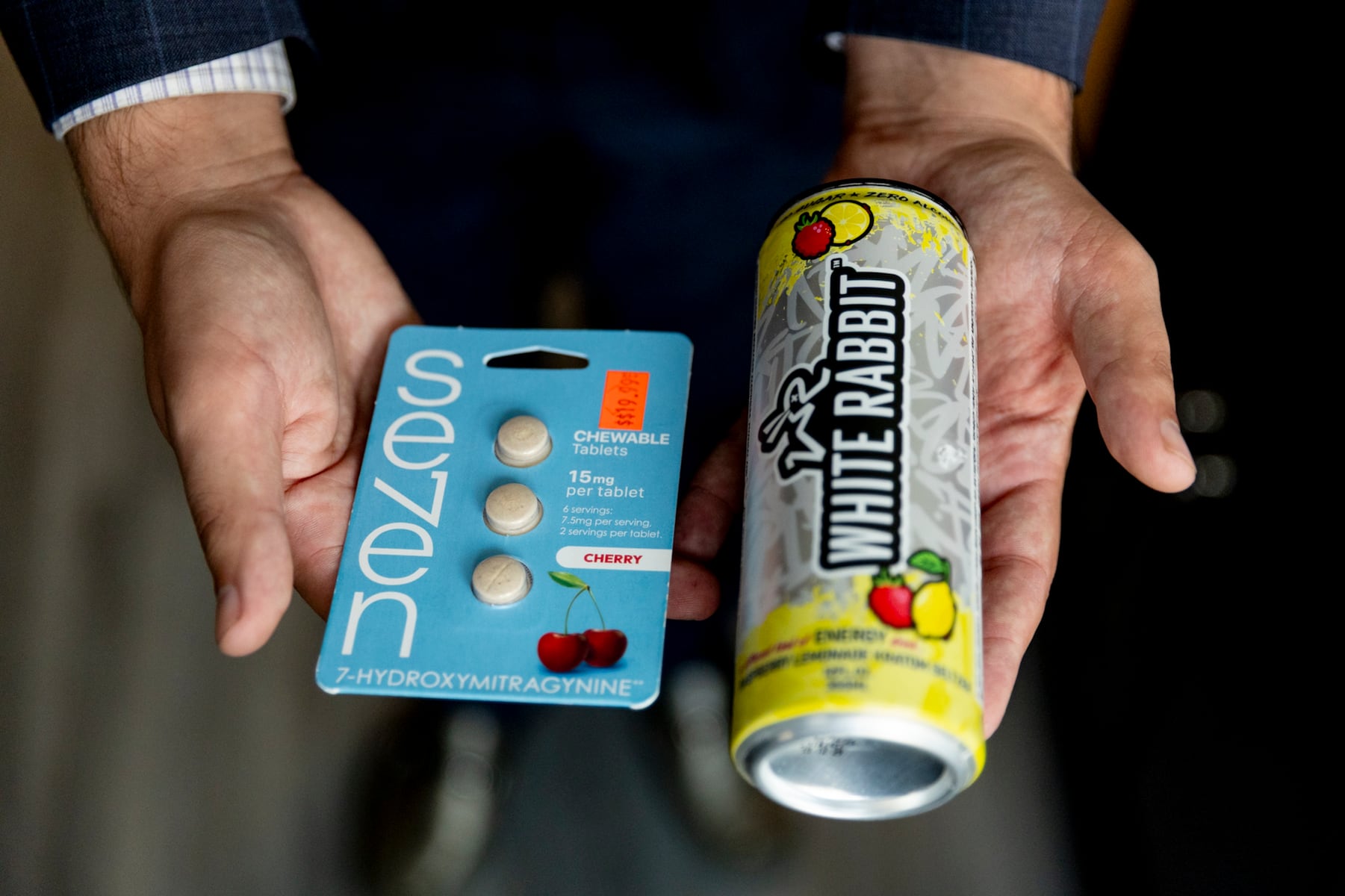Health
Flint Officials Warn of Rising Addiction to “Gas Station Opioid”

In Genesee County, Michigan, health and drug rehabilitation officials have raised alarms over a surge in addiction linked to a substance referred to as a “gas station opioid.” This highly concentrated byproduct of kratom, identified as 7-Hydroxymitragynine, is readily available at convenience stores and smoke shops throughout the region, leading to an escalating number of patients requiring treatment.
7-Hydroxymitragynine is a naturally occurring compound in kratom, but products marketed as 7-OH frequently contain super-concentrated doses. As a result, they can exhibit potency surpassing that of established opioids such as morphine. Dr. Dominic Borgialli, an emergency room physician at Hurley Medical Center, noted that many users perceive it as a benign stimulant, akin to caffeine. However, he warns that as users develop a tolerance, they find it increasingly difficult to stop, leading to withdrawal symptoms comparable to those experienced when quitting heroin.
In response to growing concerns, the U.S. Food and Drug Administration recommended in late July that the Drug Enforcement Administration classify 7-OH as a schedule I controlled substance. Following this, Florida’s attorney general implemented an emergency rule to add 7-OH to the state’s list of drugs recognized for their high potential for abuse and lack of accepted medical use.
James Hudgens, Executive Director of the New Paths Behavioral and Recovery Center, emphasized the dangers posed by 7-OH, stating, “It endangers our clients in recovery and anyone who might not know what they’re buying.” He has urged Michigan Attorney General Dana Nessel to take similar action to regulate 7-OH under state law, effectively removing it from store shelves.
Despite the alarming trends, Hudgens acknowledged that limited data suggests 7-OH poses a reduced risk of fatal overdose compared to other synthetic opioids like fentanyl. Nevertheless, he noted that dependence on 7-OH leads to withdrawal symptoms that can be distressing.
Dr. Borgialli highlighted the troubling symptoms seen in patients arriving at the emergency room, including paranoia, confusion, and severe agitation. These symptoms can blur the lines between a mental health crisis and a drug reaction, complicating treatment. “People can hallucinate or become very agitated to a point where it’s hard to tell if it’s a mental health crisis or a drug reaction,” he explained.
In cases of overdose, naloxone can be administered as a reversal agent, offering a critical safety net for those affected.
While the Michigan Attorney General’s office acknowledges the concerns surrounding 7-OH, it does not possess the emergency rulemaking authority that Florida officials have utilized. According to Danny Whimmer, press secretary for Nessel, the classification of substances in Michigan typically involves the state Department of Licensing and Regulatory Affairs and the Board of Pharmacy.
Hudgens criticized the lack of regulation surrounding kratom and 7-OH, pointing out that consumers are often unaware of the concentration of the products they are purchasing. He noted that 7-OH can be estimated to be up to 30 times more potent than regular kratom sold in small bottles in convenience stores. The kratom leaves themselves, derived from a tree native to Southeast Asia, are processed in various forms, including capsules and energy drinks.
For instance, a kratom energy drink purchased by Hudgens contained 0.01 milligrams of mitragynine, while a pill form of 7-OH purchased in Genesee County contained 15 milligrams. “The problem you have is there’s no legal dose,” he said. “It really is the wild, wild West with this. There’s no laws out there.”
As 7-OH products gain popularity, the state of Michigan has made strides in combating the broader opioid epidemic. Overdose deaths in the state reportedly declined by nearly 9% from 2021 to 2023, with provisional data projecting a further 34% decline between 2023 and 2024. Hudgens emphasized the importance of maintaining this progress, warning that the emergence of new substances like 7-OH could reverse these gains.
In a letter to Attorney General Nessel dated August 29, Hudgens stated, “The state cannot afford to see this trend reversed again.” As officials grapple with the implications of this emerging addiction crisis, the call for regulation and awareness surrounding 7-OH and similar substances continues to grow.
-

 Lifestyle5 months ago
Lifestyle5 months agoLibraries Challenge Rising E-Book Costs Amid Growing Demand
-

 Sports4 months ago
Sports4 months agoTyreek Hill Responds to Tua Tagovailoa’s Comments on Team Dynamics
-

 Sports4 months ago
Sports4 months agoLiverpool Secures Agreement to Sign Young Striker Will Wright
-

 Lifestyle4 months ago
Lifestyle4 months agoSave Your Split Tomatoes: Expert Tips for Gardeners
-

 Lifestyle4 months ago
Lifestyle4 months agoPrincess Beatrice’s Daughter Athena Joins Siblings at London Parade
-

 Science4 months ago
Science4 months agoSan Francisco Hosts Unique Contest to Identify “Performative Males”
-

 World4 months ago
World4 months agoWinter Storms Lash New South Wales with Snow, Flood Risks
-

 Science5 months ago
Science5 months agoTrump Administration Moves to Repeal Key Climate Regulation
-

 Business5 months ago
Business5 months agoSoFi Technologies Shares Slip 2% Following Insider Stock Sale
-

 Science5 months ago
Science5 months agoNew Tool Reveals Link Between Horse Coat Condition and Parasites
-

 Sports4 months ago
Sports4 months agoElon Musk Sculpture Travels From Utah to Yosemite National Park
-

 Science5 months ago
Science5 months agoNew Study Confirms Humans Transported Stonehenge Bluestones









